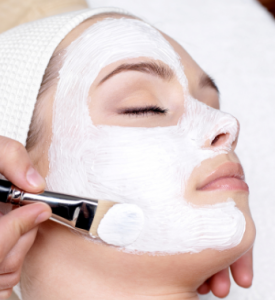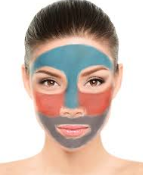It goes without saying that taking care of your skin is essential to keeping it healthy and attractive. The following skin-care advice can assist you in achieving healthy, glowing skin:
1. Gently cleanse your face twice a day (morning and night) using a light, gentle cleanser. Steer clear of strong cleaners that can deplete your skin’s natural oils.
2. Keep Hydrated: To keep your skin hydrated from the inside out, drink lots of water throughout the day.
3. Apply a high-quality moisturizer made for your skin type after cleaning your face. Maintaining your skin’s natural barrier and locking in moisture are two benefits of moisturizing.
4. Sun protection: Even on cloudy days, you should always use sunscreen with a minimum SPF of 30. UV radiation can age you prematurely and harm your skin.
5. Eat a balanced diet that is high in fruits, vegetables, lean proteins, and whole grains for a healthy lifestyle. Foods high in nutrients supply vital vitamins and minerals for good skin.
6. Exfoliate gently to eliminate dead skin cells and encourage cell turnover. Do this 1-2 times per week. Be cautious, though, as excessive exfoliation might irritate your skin.
7. Limit your alcohol intake and don’t smoke: Both of these behaviors might hasten the aging and drying of your skin. Your skin’s health can be improved by giving up smoking and consuming alcohol in moderation.
8. Get Enough Sleep: Try to get 7-9 hours of good sleep every night. Your skin can mend and regenerate itself as you sleep.
9. Stress reduction: Prolonged stress can have an impact on your skin’s appearance. Engage in stress-relieving activities like yoga, meditation, or deep breathing.
10. Keep your skincare products and makeup brushes clean to avoid the bacterial accumulation that can cause outbreaks.
11. Avoid Touching Your Face: Touching your face regularly can spread bacteria and grime, causing discomfort and breakouts.

12. Use Appropriate Products: When choosing skincare, consider your skin type—normal, dry, oily, or combination—as well as any issues you may have, such as acne, aging, or sensitivity.
13. Patch test: Before using new skincare products, test a tiny area of skin for allergic reactions or other side effects.
14. Use moisturizing masks or sheet masks sometimes to give your skin an extra dose of hydration.
15. Consult a dermatologist: For individualized guidance and treatment choices if you have particular skin disorders or concerns, it is recommended to speak with a dermatologist.
Keep in mind that the secret to successful skincare is consistency. Be patient and treat your skin right so that the results can be seen. Additionally, each person has a different type of skin, so what suits one person may not suit another. Based on the specific requirements of your skin, modify your routine.



